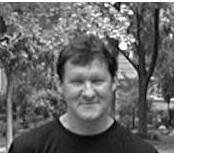Hugues Lagrange

Born in 1951 in a suburb of Bordeaux, Hugues Lagrange earned his master’s degree in econometrics at Nanterre University (Paris X) in 1975, a master’s degree in political science (Science –Po Paris) in 1977, then a BS (mathematics) at Paris VI University in 1980. He wrote his doctoral dissertation on strikes and social unrest in France from 1890-1975, and earned his PhD in 1981. Taking a position with France’s National Scientific Research Center (CNRS), he worked first in Grenoble on fear of crime and public preoccupation with crime.
Since 1989, he has worked with the Observatoire Sociologique du Changement in Paris, and has been leading researcher in charge of the first national survey on sexual behaviour and AIDS among French adolescents. During the same period, he worked on drug addiction among youngsters and public policies of risk reduction.
For the past ten years, Hugues Lagrange has been working on crime prevention in poor districts of French cities. He is currently involved in a comparative study on those who drop out of school and those who are high achievers in three cities -Paris, Mantes and Nantes. The aim of the study is to link school training, schemes of prevention and family support in order to evaluate their effect on integration.
Hugues Lagrange is the author of several books, the latest published in 2006 by Presses de Sciences-Po being entitled : Précarités Urbaines et Protestations : Une Singularité Française (Urban Precariousness and Discontent : A French Peculiarity).
He has also written research reports and articles, most of which have been published in the prestigious magazine Esprit.
LECTURES
THE 2005 PROTESTS IN THE FRENCH SUBURBS
Occurring several months apart, the riots in November and the university and high school student protests brought to the fore questions of segregation, urban precariousness and losses in social standing, but they brought attention as well to intergenerational inequalities at the heart of the social debate.
The areas and individuals involved reveal the motivations and dynamics at play. Beyond the recurring and growing tensions between youth from working-class neighborhoods and the police, the intensity of the protests brings into question the « French model of integration » as well as the manner of governing.
Is it possible to grasp the extent of these events without taking into consideration not only the relegation of some into the poorest neighborhoods but also the self-segregation of the rich ? How can racial discrimination when it comes to hiring be ignored, or the political under-representation of the immigration groups most at risk ? How is it possible not to see that the degree to which differences exist in education – programs, options, attractive facilities – helps to reinforce a feeling of injustice ?
But we cannot be content merely to shed light upon these inequalities without trying to think of ways for the different generations and groups among young people to forge new kinds of solidarity., without also considering those kinds of solidarity which are necessary to the maintenance of the city as a place of integration and of a mixed social nature.
Express your interest in hosting Hugues Lagrange - Online Registration Forms
Express your interest in hosting Hugues Lagrange - Download paper forms & see the calendar